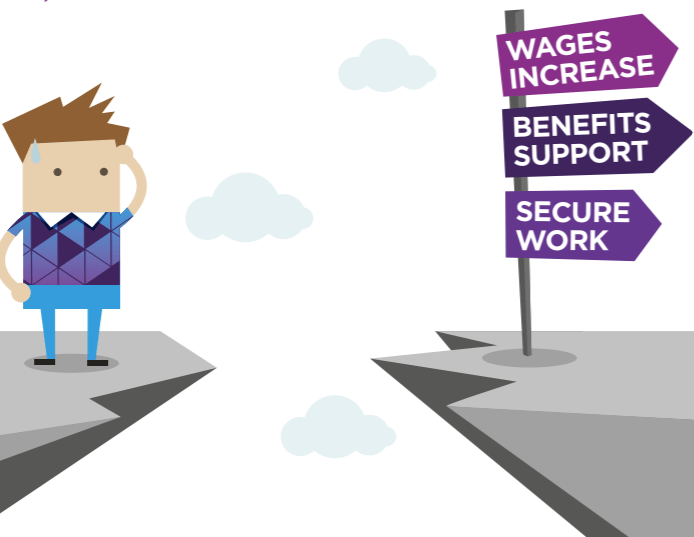
Nikki Bond, Senior Research Officer, Money and Mental Health
Mind the mental health income gap
22 September 2020
Our new report, Mind the income gap, launched today, is the second report in our Mental Health and Income Commission series, exploring how people’s mental health affects the income they receive. We present new evidence which highlights the significant size of the mental health income gap. People with common mental disorders such as anxiety or depression receive annual average incomes of £8,400 less than people without mental health problems.
Our report seeks to understand how lower incomes for people with mental health problems have arisen. To do so, we take a look over the last 13 years, since the last recession, to consider how the labour market and the social security system have shaped the incomes of people with mental health problems.
We found that the mental health income gap is driven by three systemic factors: low employment prospects, low wages and long term benefits cuts. These changes in the labour market and social security system mean people with mental health problems have less money in their pockets, which, for many has led to lower standards of living.
Low employment prospects
People with mental health problems are less likely to be in employment. In 2018/19, just under half of people with a mental health problem were in employment, compared to four out of five people without.
While some people are unable to work due to the effects of their mental health problems, other’s face barriers to employment. People told us that it can be difficult to find suitable work that fits with their need to manage their mental health problems. The flexibilities which can help people manage their mental health, such as being able to work from home or work unusual hours, are not widely advertised as options by prospective employers, and the pool of jobs that do offer such flexibilities can be small.
Retaining employment for people with mental health problems can be tricky too. People face inflexible employers who are unwilling to make reasonable adjustments. Or, the financial pressures brought on by sickness benefits policies that are limited in duration or generosity, mean people who have taken time off for their mental health, return to work too early. Returning to work when people are too unwell to do so, can lead to questions over performance or threats of dismissal on capability grounds.
“I want to stay in work, I want more understanding and flexibility in the workplace and benefits system.” Expert by experience
People also found progressing in employment difficult. Moving employers for better job prospects, higher incomes or greater job satisfaction, was often fraught with fear and uncertainty about new employers potential attitudes to mental health problems.
Low wages
The type of jobs people have plays a crucial part in how much income people earn. However, people with mental health problems are more likely to be in lower-paying roles, with more than one in three in the lowest-paying types of occupations (such as shop assistants, kitchen staff and care workers), compared to one in four of those who have not had mental health problems.
Moreover, people with mental health problems, both employees and the self-employed, are overrepresented in part-time work too, which can play a significant role in how much money they take home.
Long-term benefits cuts
People with mental health problems are also more likely to be on benefits. In 2014, nearly half of ESA claimants had a long-term mental health condition. While the generosity of the benefits that people with mental health problems may rely on has always been low, rates of benefits have fallen substantially over the last decade. Jobseekers Allowance and Employment Support Allowance (ESA) is equivalent to just 12.5% of typical weekly earnings and have dropped in value as a result of the 2015/16 benefit freeze.
“The system is deeply flawed and not fit for purpose…The amounts you can claim are absolutely farcical. They bear absolutely no relation to the actual cost of living in its most basic form…[it is] no sort of safety net.” Expert by experience
Other changes have reduced the generosity of benefits further. Some additional payments in ESA have been removed, the disability assessment criteria has changed, and there is an increased focus on conditionality and sanctions associated with benefit claimants complying with requirements to prepare for and seek work. All of which have reduced the amount of money some people with mental health problems receive.
Closing the income gap
Our report presents evidence on the systemic factors which have contributed to the mental health income gap. The next step for us and the Mental Health and Income Commission is to consider what a fairer labour market and welfare system would look like, and how government and businesses can better support people to narrow the mental health income gap. Watch this space for more research and policy ideas from the Commission in the coming months.
To find out more, read our Mind the income gap report here.
